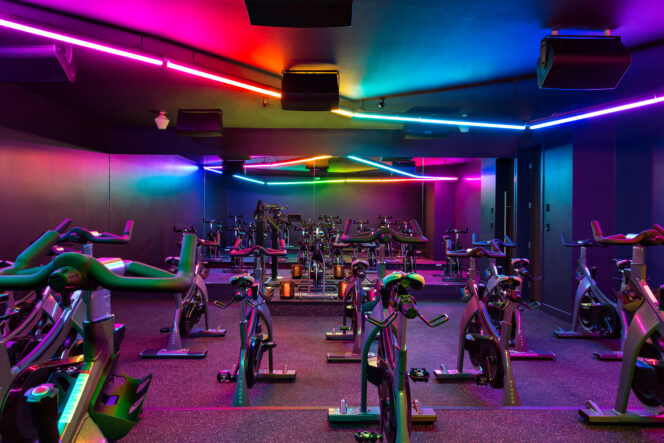
CMMN GRND; Photo credit @houseofbohn and @karinbohn
When Womyn’s Ware opened in 1995 in Vancouver, its business concept was ground-breaking. Co-founders Janna Sylvest and Otter Louis saw an industry that was often exploitative, and instead wanted to create an environment that was about community and education. “What they wanted to do was create a safe space for their clientele who were, predominantly at the time, lesbian folks,” says Lesley McHale, current co-owner of the business. The name, Womyn’s Ware, was a political statement meant to underline Sylvest’s and Louis’ feminist stance.
Over the course of two decades, Womyn’s Ware became an institution within the city, developing a very loyal following. Then, in 2014, McHale took over the business, along with her business partner Ann Boone. Sylvest and Louis were a bit hesitant selling their business to two straight cis women but McHale and Boone reassured them they would continue the original mandate. The two new owners have also expanded the inclusivity of the sex-positive store. “We wanted to open up the space, arms wide-open, and make sure all folks know they are welcome here, and there is something quality for them,” McHale says.
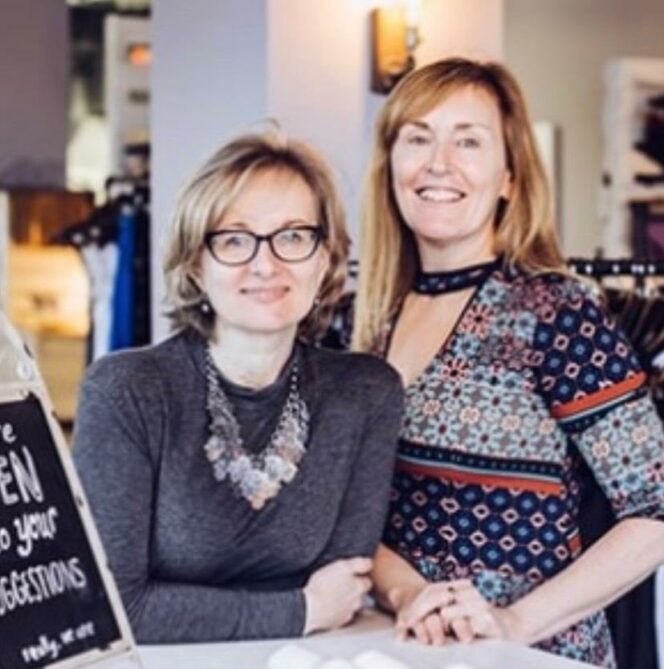
Lesley McHale on the left. Ann Boone on the right. Photo credit: Alfonso Arnold Photography.
As Boone and McHale did research and interacted with customers, they quickly discovered that Womyn’s Ware was about more than selling safe, high quality adult toys. “Folks who come here are looking for some education. Maybe they don’t understand their bodies. Their partners’ bodies might be different than theirs. We didn’t realize how much education folks needed before they could make the decisions for themselves. We also didn’t realize how emotional the conversations would get and how much folks needed an ear,” McHale says.
Their attention to their customers’ unique needs led to the launch of a brand-new business offshoot: Your Open Closet, which specializes in gender-affirming undergarments. Many of Womyn’s Ware customers told McHale how they found it difficult to find products that fit well and were easily accessible. A myriad of reasons made it difficult for them to get what they needed. “Some folks can’t receive items safely at their homes, and some folks don’t have addresses,” McHale says.
They asked their customers what they were looking for and then hired a local designer to create products, with a binder being the first one. While Your Open Closet initially had its own retail space, due to demand beyond Vancouver, the brand has shifted to online sales, which can be shipped or picked up at Womyn’s Ware.
While Womyn’s Ware is technically a business, McHale never thinks of it as selling, but about educating and empowering everyone who enters their space. “Nobody is broken. There are ways to navigate things if that’s what you’re looking for,” she says, adding, “This is a safe space for everybody, regardless of your gender, regardless of your sexuality,” McHale says.
Womyn’s Ware and Your Open Closet work with clinicians and therapists in assisting their patients. As well, they support local schools, community groups, and arts and culture organizations with their fundraising, as yet another way of building inclusive community. “We’re a great example of Vancouver welcoming and supporting small businesses that they love. I think we represent how important it is to have things locally accessible,” McHale says.
A more recent example of a Vancouver business that promotes inclusivity is CMMN GRND Fitness and Social Wellness Collective, which launched in 2020. Dylan Archambault was a competitive figure skater for sixteen years, and then a spin instructor before he co-founded the business with his mother, Cheryl Archambault. On CMMN GRND’s website, Archambault says, “I want to show up proudly as a queer man, a femme boy, a creature of love, and a ball of energy.”
Archambault started with an initial intention that required and benefited from the input and support of a host of individuals. “When I endeavoured to open CMMN GRND, I knew there were issues within the industry. I didn’t quite know the extent of them or what they were but I wanted to create a space that was inclusive and equitable. However, I really didn’t know what that truly meant,” Archambault says. Over time, that desire to cultivate inclusivity has become much more nuanced and concrete.
CMMN GRND works to move beyond old models related to fitness. Archambault explains: “Historically, the approach to fitness has been about building out and caring for binary bodies. We know, of course, that there are more than two genders, and there is so much more complexity and nuance to the relationship we have with our body. We have built out all of our class programming with a basis of body neutrality and gender neutrality to create more space to truly come home to your body.”
What that means practically starts with the space itself, which features gender-neutral bathrooms and an aesthetic and overall vibe that are not gendered. Archambault has made diverse representation a priority in all aspects of CMMN GRND. “Having gender non-conforming, trans bodies, and bigger bodies in our space was super important, within our staff and instructors as well,” Archambault says.
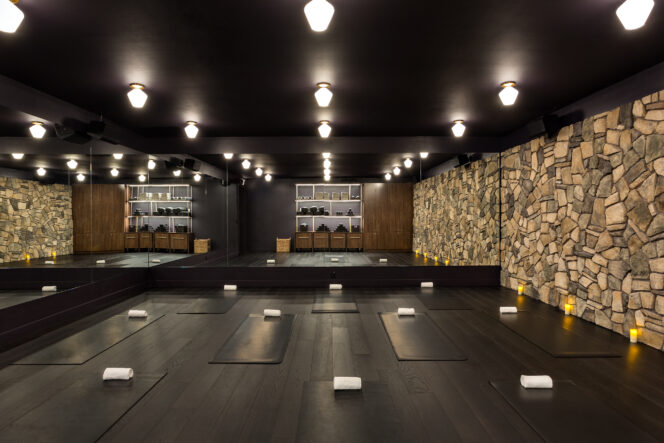
Photo credit @houseofbohn and @karinbohn
He also wanted to prioritize creating a safe and community-oriented space for queer folk, as well as racialized individuals. “With the structures that we currently live in, all bodies are inherently politicized; this is all the more true for queer, trans, non-binary, and BIPOC bodies. More queer-friendly and queer-exclusive spaces are needed everywhere, but especially in the realm of fitness and wellness, to allow for more collective healing and community care,” Archambault says.
Thus, in addition to staff being trained in diversity and inclusion, they are also educated in trauma-sensitive and choice-based class design, which draws from yogic philosophy. “Because every body does hold onto trauma in a different way, we’ve designed our classes with that understanding to make space for more people to feel brave and safe in those environments,” Archambault says.
What that means practically is that, in classes, such as Mindful Strength and Cardio or Spin classes, participants are offered a few choices that they can decide to take up—or not. They can dial up the sensation or intensity of what they’re doing based on how they’re feeling. Archambault says, “It’s also the encouragement of every movement practice or modality being like an exploration.” This takes away judgement and fixation on a specific goal when it comes to moving.
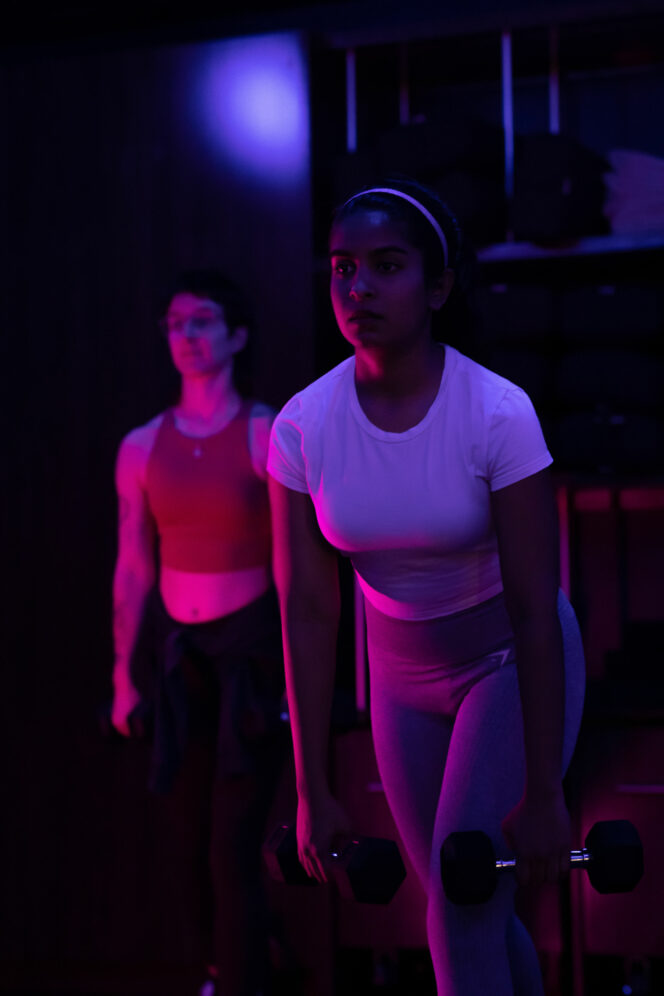
Photo credit @ryanarturo_
In addition to rethinking assumptions about fitness and movement, CMMN GRND is involved in decolonizing practices. Each yoga class starts with a land acknowledgement and the entire team did a wellness and decolonization workshop with Malina Dawn, a yoga instructor who identifies as Cree Métis. “I think the bigger work and purpose for us is to work through an entire decolonized lens,” Archambault says.
While CMMN GRND is off to a good start, Archambault stresses there is still so much work to do: “It’s a long, long marathon, not a sprint.” The pandemic has also forced CMMN GRND to be more modest with their ambitions based on limited resources.
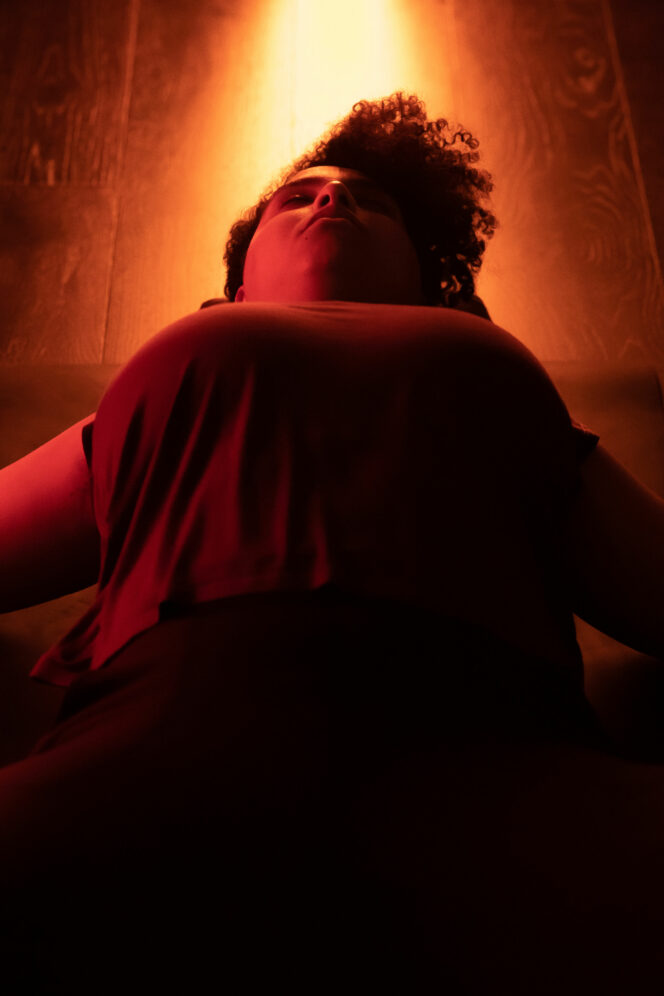
Photo source @ryanarturo_
In terms of areas for further improvement, Archambault wants to create more areas for inclusion. “We can represent way more people than we currently represent,” he says. One avenue is encouraging and setting up structures for more diverse leadership in fitness.
Other future initiatives include incorporating adaptive movements for people with various disabilities, as well as offering more workshops for people who can’t come to a physical studio space.
Overall, CMMN GRND and Womyn’s Ware are aligned in their desire to empower their clients, be inclusive in their spaces, and foster holistic wellness.










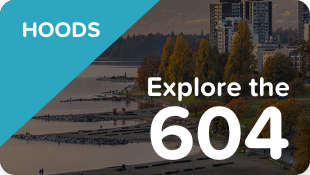

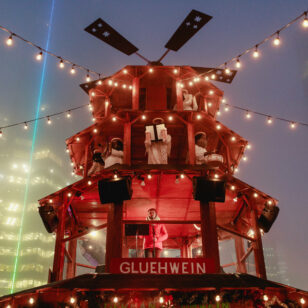

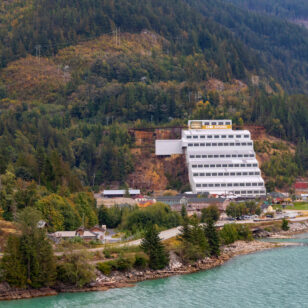
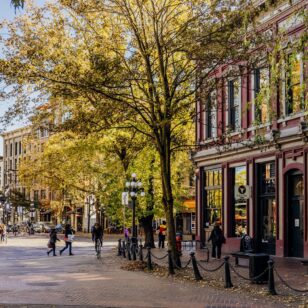

One Response to Celebrating Vancouver’s Queer-Run and Gender-Inclusive Companies, Past and Present